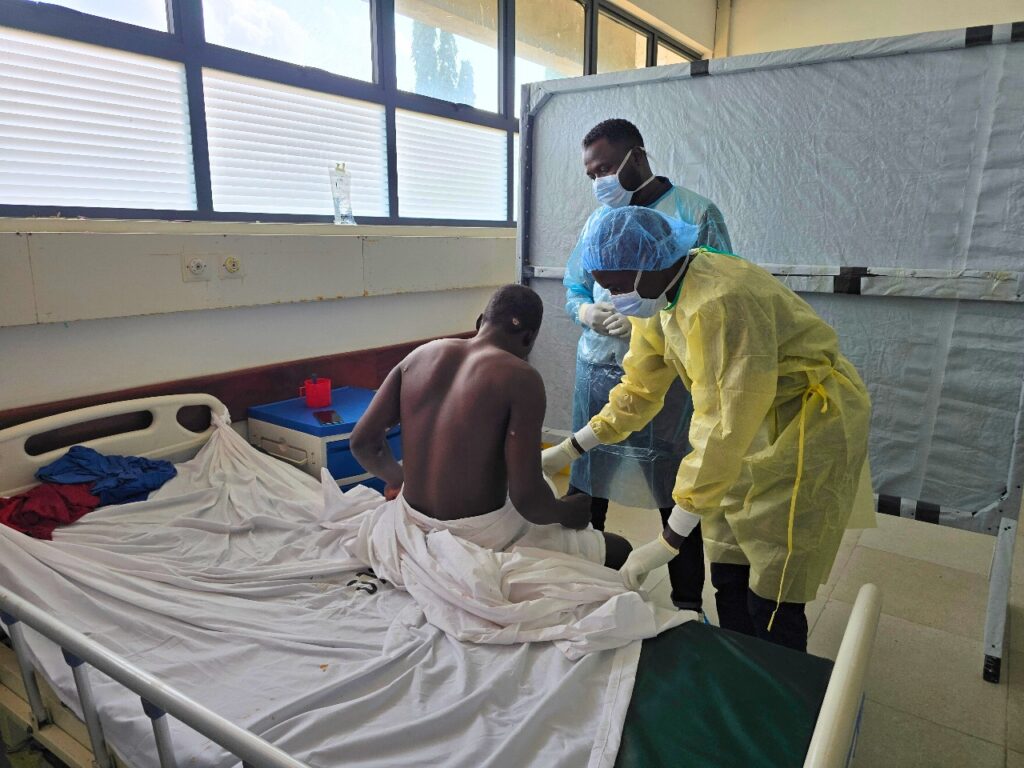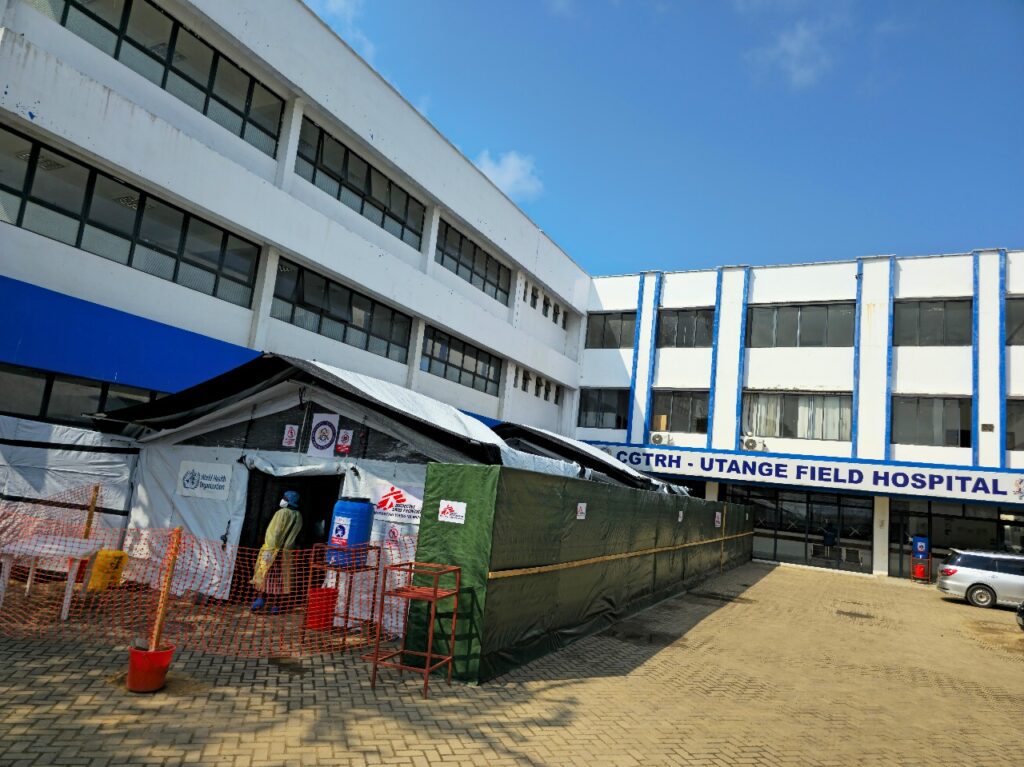…with Mombasa accounting for nearly half of Kenya’s Mpox infections, MSF and the Ministry of Health intensify early detection, treatment, and vaccination advocacy, while tackling stigma that keeps patients in the shadows.
By Bunmi Yekini

Mombasa, a bustling tourist hub in Kenya is quietly battling against a fast-spreading but often misunderstood disease, Mpox. At the Utange Field Hospital Isolation Centre, Médecins Sans Frontières/Doctors Without Borders (MSF) is working alongside the Mombasa County Department of Health to deliver free, timely, and quality care for Mpox patients.
Since July 2024, Kenya has reported 336 Mpox cases in 24 counties, with Mombasa topping the chart at 152 cases. The figures, however, may not tell the whole story. Stigma, fear, and limited awareness mean many people with symptoms avoid seeking help, delaying care and increasing the risk of severe illness.
“Our efforts focus on early diagnosis, effective treatment, and continuous monitoring of patients,” explains Laura Gómez Mantilla, MSF’s Country Director in Kenya. “Beyond clinical care, we’re also strengthening infection prevention measures, improving case management, and supporting vaccination for high-risk groups.”
Inside the Utange facility, the only Mpox isolation unit in the county, MSF teams provide inpatient care, particularly for those with advanced disease or coexisting conditions. The organization has trained hygiene and healthcare workers, integrated Mpox awareness into broader health activities, and donated medical and sanitary supplies.

Since the outbreak began, MSF has trained 70 peer educators and sensitized 1,000 sex workers on Mpox recognition and referral, a critical step in curbing community transmission. The team is also calling for a rapid rollout of vaccines.
“We are glad to learn that the Ministry of Health has received Mpox vaccines,” Gómez Mantilla says. “MSF is ready and willing to support vaccination efforts in Mombasa, and we urge the Ministry to swiftly make vaccines available here and in other counties with high caseloads. Acting quickly will help protect communities and bring this outbreak under control.”
Mpox, characterized by rashes on the hands, feet, mouth, or other areas, often with fever, sore throat, and muscle aches, can be transmitted from animals to humans, from person to person, and via contaminated environments.
“Symptoms are usually mild and last two to four weeks, but severe cases can occur if treatment is delayed,” notes Caroline Mugun, MSF Project Medical Referent in Mombasa. “Complications, and even death, are more likely if the immune system is already compromised.”
Both Mugun and Gómez Mantilla agree that ending the outbreak will require more than hospital care.
“To effectively control Mpox within communities, it remains urgent to strengthen community-level case detection and referral systems,” Mugun says. “We also need to tackle stigma through health education and outreach that encourages early care-seeking.”
